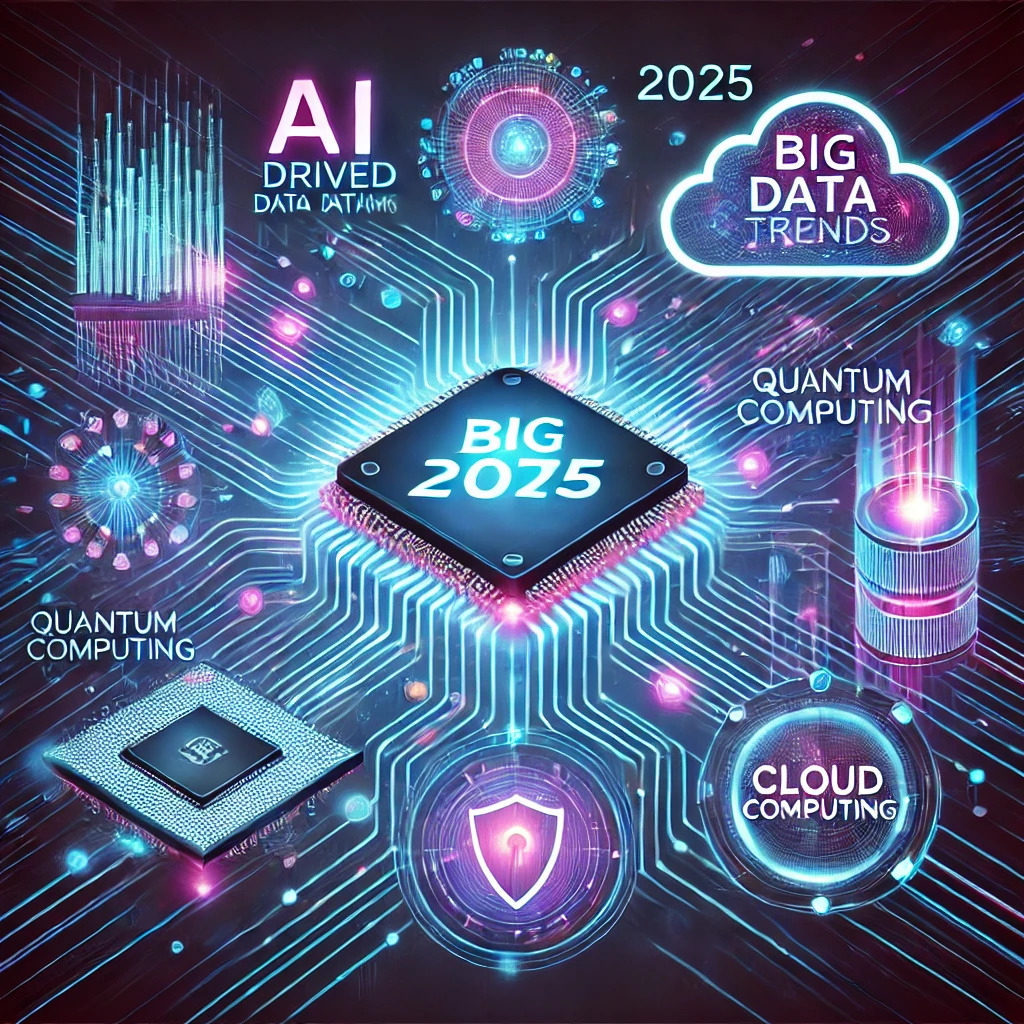Big Data continues to evolve, driving innovation across industries. As we step into 2025, several trends are set to shape the future of data processing, storage, and analytics. From AI-driven automation to real-time data streaming, here are the top Big Data trends to watch in 2025.
AI-Powered Data Analytics
Artificial Intelligence (AI) and Machine Learning (ML) are becoming integral to data analytics. AI-powered tools can process vast amounts of data in real-time, offering actionable insights with minimal human intervention. Expect more businesses to integrate AI-driven analytics for faster decision-making and automation.
Real-Time Data Processing
With the rise of IoT devices and edge computing, real-time data processing is becoming a necessity. Technologies like Apache Kafka, Apache Flink, and Google Cloud Dataflow are enabling businesses to analyze and respond to data instantly. In 2025, companies will focus more on real-time analytics for fraud detection, personalized customer experiences, and predictive maintenance.
Data Fabric Architecture
A data fabric architecture allows seamless integration of data across hybrid and multi-cloud environments. As businesses collect data from multiple sources, they need a unified approach to manage and analyze information efficiently. Data fabric simplifies data access and governance while enhancing security and compliance.

Edge Computing and Decentralized Data Processing
Edge computing is reducing reliance on centralized data centers by processing data closer to its source. This minimizes latency and enhances performance, particularly for IoT applications, autonomous vehicles, and smart cities. By 2025, edge computing will play a crucial role in reducing cloud dependency and optimizing data-driven applications.
Privacy-Enhancing Computation (PEC)
Data privacy is a growing concern, leading to advancements in Privacy-Enhancing Computation (PEC). Techniques like homomorphic encryption, differential privacy, and federated learning enable secure data processing without exposing sensitive information. These methods will become critical for industries handling personal data, such as healthcare and finance.
Automated Data Governance and Compliance
As data regulations tighten globally (such as GDPR, CCPA, and India’s PDPB), businesses will turn to automated data governance solutions. AI-driven compliance tools help organizations track data lineage, enforce policies, and detect anomalies, ensuring regulatory adherence without manual intervention.
Big Data and Sustainability
Sustainability is a growing focus, and Big Data plays a key role in optimizing resource usage. Industries are leveraging data analytics to reduce carbon footprints, enhance energy efficiency, and improve waste management. Expect more businesses to integrate Big Data solutions for environmental impact monitoring and sustainable decision-making.
Quantum Computing in Big Data
Quantum computing is still in its early stages, but by 2025, its impact on Big Data will become more evident. Quantum algorithms can process vast datasets at unprecedented speeds, enabling breakthroughs in cryptography, optimization, and complex simulations. Companies investing in quantum computing will gain a competitive edge in data processing.
Low-Code/No-Code Big Data Analytics
With the demand for data-driven insights growing, low-code/no-code analytics platforms are simplifying data operations. These platforms enable non-technical users to create dashboards, automate reports, and perform advanced analytics without coding expertise. In 2025, expect widespread adoption of user-friendly analytics tools.
Synthetic Data for AI Model Training
As AI models require vast amounts of training data, synthetic data generation is gaining traction. Synthetic data mimics real-world data while eliminating privacy concerns and bias. This trend will accelerate AI development across industries like healthcare, finance, and autonomous systems.
Conclusion
Big Data is continuously evolving, and 2025 promises significant advancements in real-time analytics, AI-driven insights, privacy protection, and sustainability. Businesses that stay ahead of these trends will gain a competitive advantage in leveraging data for innovation and decision-making.
Are you ready for the future of Big Data? Let us know how these trends will impact your industry!